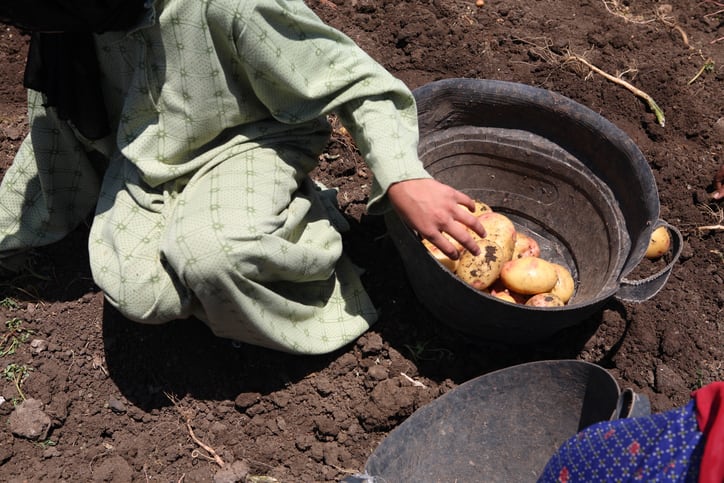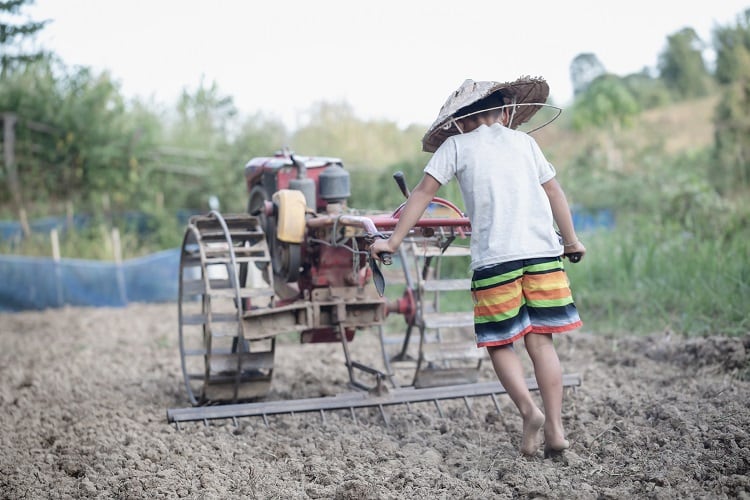Germany’s parliament recently approved a new supply chain law that will make larger companies legally responsible for human rights and environmental abuses within their global supply chains.
The act, which follows similar moves in France and the Netherlands, requires German companies of a certain size to establish due diligence procedures that prevent abuses within their supply chains and take action if they find violations.
Those that fail to meet the requirements of the new law could be forced in the worst cases to pay fines equivalent of up to 2% of their annual global turnover.
All this has the noblest of intentions. The law seeks, for example, to curb abuses such as child labour. Germany’s Federal Minister of Labour and Social Affairs Hubertus Heil said awareness about human rights in global supply chains is rising and that “decency and prosperity must not be seen as contradictory."
Last year, Germany’s Minister of Economic Co-operation and Development Gerd Müller outlined a vision to pioneer the concept of fair globalisation. He told journalists that around 70 million children still work in exploitative conditions around the world. “The exploitation of people, nature, and child labour must not become the basis of the global economy and our prosperity,” he said. “That would be a boomerang that would strike back at us. Our socio-economic model can be a model for a global economy.”
So what’s the problem? For a start, nobody’s too happy with the legislation. Activists are complaining it doesn’t go far enough, and that too few companies will be affected. From 2023, when the law comes into force, it will apply to companies with more than 3,000 employees in Germany – which is around 900. From 2024, this expands to companies with more than 1,000, impacting around 4,800. Germany’s food association body BEV says 40 German food and beverage companies will initially be impacted.
Amnesty International says there are ‘loopholes’ regarding human rights protection. Oxfam has protested that businesses will only be required to establish due diligence on their immediate suppliers, meaning, for instance, forced labourers can’t file for damages in German courts.
Competitive hurdles for German companies
German businesses meanwhile fear the law will disadvantage them, stifling innovation, enterprise and endeavour.
Christoph Kannengiesser, managing director of the Africa Association of German Business, told FoodNavigator the increased bureaucratic burden of identifying and assessing risks within their supply chains will force companies to withdraw from markets in developing countries as the expense or risk becomes too high for them compared to the return.
Companies, particularly in the food sector, he told us, are also currently considering concentrating on working with 'fewer and larger suppliers', which will disadvantage many small and medium-sized companies.
He’s also concerned many other companies may withdraw from ‘challenging’ markets, leaving the field open to other players who might not care about human rights. German companies, after all, lead the world on international standards in compliance and corruption. The BEV adds that the food companies are already aware of their responsibility to respect human rights in their production sites and direct supplier relationships at home and abroad. Many companies have long been committed to fair supply chains and certified raw materials for years, it says, especially for imported goods from non-EU countries such as coffee, tea, fruit, cocoa, fish, spices and palm oil.
A unilateral national law in Germany that creates additional competitive hurdles for its companies is therefore not the solution to global human rights abuses. “Surely it must be the task of state actors to ensure that laws protecting human rights, the environment and social standards are observed,” suggested Kannengiesser.
The legislation also opens up accusations of hypocrisy and unfairness. Where is the hoo-hah, for example, concerning oat milk maker Oatly – which very regularly and very loudly proclaims its fixations with ethics and sustainability – which has just invented the Chinese symbol for plant-based so it can launch its IPO-fuelled expansion plans in the country?
China is the largest consumer market in the world and the fastest-growing market for dairy alternatives. It also happens to be a country marked, according to Amnesty International, by harsh crackdowns on human rights defenders and the systematic repression of ethnic minorities in the Xinjiang Uyghur Autonomous Region.
Oatly would argue that rapprochement is the best way to tame China’s abuses. But the danger of the German supply chain law is that it could compel German companies to take a side and force them out of the country with their bottom lines – and the Federal Ministry of Finance’s tax revenues – feeling the pinch.
What’s the solution? The answer is surely an EU-wide, uniform law, which is what the BEV and others are calling for. This would prevent Germany from being put at a disadvantage from all other EU Member States that do not have equivalent laws.
According to the BEV, European, or better still multilateral, regulation will allow competitive advantages for German and other European companies in the longer term, as the importance and appreciation of sustainability increases internationally.
“Instead of Germany going it alone nationally, we would have liked to see a European regulation to achieve fair competition in the internal market and greater assertiveness in global supply chains. Therefore, we continue to call for a uniform European regulation," Stefanie Sabet, managing director and head of the BVE‘s Brussels office, told us.
Proposals that tackle supply chain legislation are expected from the European Commission later this year. But it needs to act now to create a level playing field for businesses.



